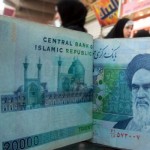
A private consortium is Iran’s answer to finding a way round the oil embargo imposed against it by the European Union (EU) at the beginning of this month. According to an Iranian official quoted by Reuters, Iran will sell its crude oil to European refineries through a private consortium.
The statement, released on Saturday, comes as a bold evasion of the oil embargo imposed on Iran by the EU. This embargo was coupled with United States sanctions imposed on any country which dealt with the Iranian central bank; the main Iranian body responsible for exporting oil.
Iranian president Mahmoud Ahmadinejad described the latest round of sanctions imposed against the Islamic Republic as the “strongest” so far.
Europe was the destination of one-fifth of Iran’s crude oil, until the embargo came into force. Iran’s oil revenues have already decreased by 25 to 35 percent since the beginning of this year, according to analysts cited by Reuters.
According to the New York Times, the Islamic Republic is still producing oil without potential buyers –pumping nearly 2.8 million barrels a day. They fear that stopping production might leave the oil wells damaged. Nevertheless, there is not enough space for the millions of barrels which are produced every day, and not sold.
The Wall Street Journal ruled out concerns that the latest round of sanctions will lead to sky-rocketing oil prices. They said the presence of other surrogate oil producers can fill in the void which Iran’s oil embargo would create in the international oil market.
Saudi Arabia is Iran’s number one replacement and currently the world’s top oil exporter.
The alarm over increasing oil prices is not only due to the embargo, but also the fear that Iran may close down the Strait of Hormuz in a reaction to the sanctions.
The Straits of Hormuz, which lie off the coast of Iran, is a narrow strait between the Gulf of Oman and the Persian Gulf. Twenty percent of the world’s oil passes through the Straits.
Major General Hassan Firouzabadi, the chairman of Iran’s armed forces joint chief of staff, stated on Saturday that unless its security is threatened, the Islamist Republic has no intention of closing down the Straits, according to Press TV.
Several countries have severed oil-related ties with Iran following the activation of the sanctions. Kenya has cancelled a four-million-tonne oil deal which it had signed with Iran only last month, according to the BBC.
In response, state-run gazette Tehran Times quoted Soraya Sepahpour-Ulrich, an independent researcher, saying that the United States-EU-brokered sanctions are a form of “financial suicide” which will adversely affect the European economy.
Sanctions have been imposed on Iran as an attempt to coerce it into abandoning its nuclear programme; a programme which the west sees as a global threat. Iranian says that its program is entirely peaceful.


